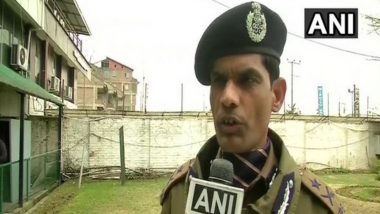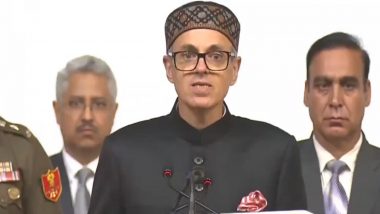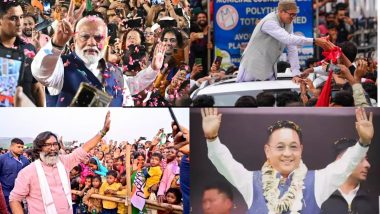Srinagar, October 6: The Lashkar-e-Taiba (LeT) militants behind Monday's attack on a CRPF road-opening party in the Nowgam area on the Jammu-Srinagar national highway in Jammu and Kashmir, in which two personnel were killed and three were injured, have been identified, a senior police official said on Tuesday.
"We have identified the militants behind the attack. They are from the Lashkar, led by a Pakistani terrorist named Saifullah. We are on the job and they will be neutralised soon," Inspector General of Police (IGP), Kashmir Zone Vijay Kumar said. Terror Attack in Jammu and Kashmir: Two CRPF Jawans Martyred, 3 Injured After Terrorists Attack Road Opening Party at Pampore Bypass of Pulwama.
He was speaking to reporters after the wreath-laying ceremony for the two Central Reserve Police Force (CRPF) jawans, who were killed in the attack.
"Two militants came on a scooter, most probably from the Pampore side, and opened indiscriminate firing from an AK rifle," the IGP said.
He admitted that the module of the Pakistan-based militant outfit had carried out an attack earlier in the Chadoora area of Budgam district as well, in which an assistant sub-inspector of the CRPF was killed. "We are conducting operations and soon, they will be neutralised," the officer said.
Responding to a question on militants using two-wheelers to carry out attacks, Kumar said it is easy for the ultras to move around on motorbikes on roads where the vehicle movement is heavy. Jammu & Kashmir: Terrorists Fire Upon CRPF Patrolling Party in Sopore, Some CRPF Jawans, Civilians Injured.
"We cannot check every vehicle, vehicles are checked based on information mostly. Checking every vehicle will cause traffic jams," he said. The IGP sought to assure people, saying there is no need to panic and "the situation is under control". On the use of virtual phone numbers by militants, he said this technology is a cause of concern but it has been used for subversive activities for years now.
"Virtual numbers have remained challenging since the beginning. It is challenging across the world. We are trying to find technological answers," Kumar said.













 Quickly
Quickly




















